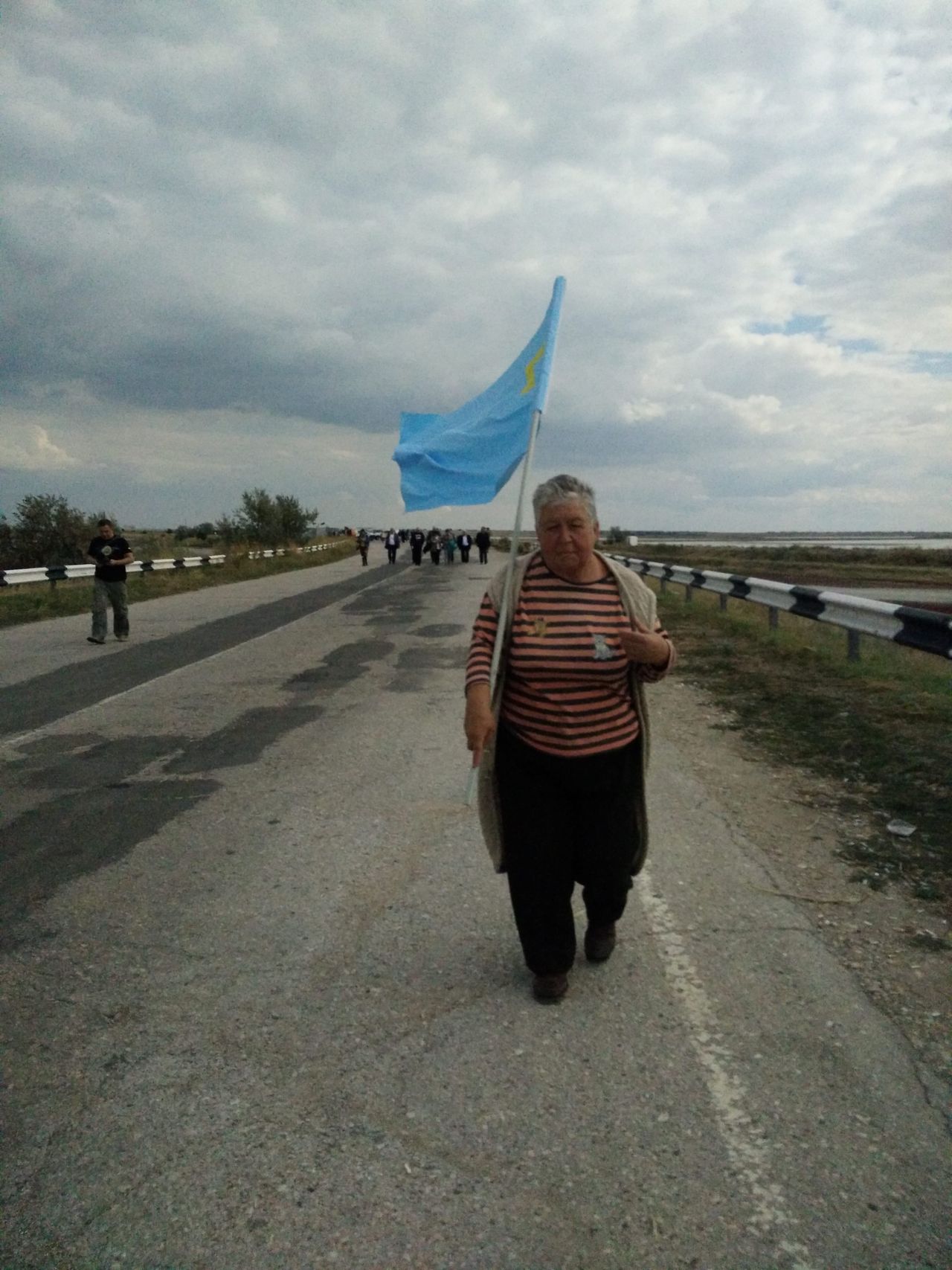
On October 14, the Russian police detained 49 Crimean Tatars for participating in the demonstrations without proper permission. They protested repression and treating them like terrorists.
The Saturday protests were organized in the form of a one-person picket and over 100 Crimean Tatars came to take part in them. Everyone kept banners, usually with slogans “Tatars are not terrorists!”, “Leave my nation alone, successors of NKVD!” or “FSB, hands away from the best sons of my nation”, as reported by the Crimean Solidarity organization.
The protesters were of different age and their actions were organized in all regions of the Peninsula. Although the protests were peaceful and did not violate public order, 49 participants were arrested and taken to police stations. However, this time no one was arrested.
– After receiving explanations and having some preventive talks, all participants of the demonstrations were released – said the press service of the Crimean board of the Ministry of Russian Foreign Affairs on Saturday evening.
Saturday’s action was a protest against the repression imposed by the Russian force structures in Crimea against Crimean Tatars and Crimean Muslims. Since the annexation of Crimea by Russia in spring 2014, the Federal Security Service and the Russian police regularly conduct searches in the Crimean Tatars’ houses. People involved in the defence of human rights and journalists are especially harassed. Only in September there were three cases in court in Simferopol against the two leaders of the Crimean Tatar movement: Ilmi Umerov, Achtem Czyjgozu, and a journalist Mykola Semena.
New repressions are getting heavier. Recently, the “popular” form of struggle with Tatars has been the short-term arrests – for a few days – and financial penalties adjudged in administrative mode. They mostly affect those who come to express their support or videotape revisions conducted by the FSB at a neighbour’s homes.
There are also more serious matters. Russian authorities accuse Crimean Tatar representatives of extremist activities and participation in illegal Islamic organizations, for example Hizb ut-Tahrir, which is banned in Russia, but legal in Ukraine. That is why it freely operated in the Crimea until 2014. Tatars themselves claim that repression often affects deeply religious people who live according to the principles of the Quran.
On 11 October in Bakhchysarai, the FSB carried out simultaneous searches in several houses of the Crimean Tatars. In total, 10 people were detained. Eventually, six of them were arrested for two months.
– The centre of the international terrorist organization Hizb ut-Tahrir – illegal in the Russian Federation – was eliminated – the Federal Security Service announced on the same day.
Until 2014, the Security Service of Ukraine also monitored the situation among Crimean Tatars. There were searches and detentions. However, as the Tatars indicate, it did not resemble repressions. There were no terrorist attacks in Crimea either.
The Verkhovna Rada of Ukraine announced on February 20, 2014 the beginning of the “temporary occupation of Crimea and Sevastopol” by Russia. Initially only pro-Russian meetings took place in Crimea. However, on the night of 26-27 February 2014, the buildings of the Parliament and the government of the Republic of Crimea in Simferopol were occupied by armed people without military badges. Russian flags were hanging on the administrative buildings. On the next days “little green men” or “friendly people” – that’s how Russian soldiers were called – were taking control over the next buildings and objects in the city.
On 16 March 2014, the so-called referendum, that has not been recognized by the international community, was organized in Crimea. According to official data, most voters were in favour of separation from Ukraine. Two days later, the President Vladimir Putin announced the annexation of the Peninsula to the Russian Federation. As a result, the USA and the European Union imposed economic sanctions on Russia. The Russian authorities call the events from 2014 as “the restoration of historical justice.”























